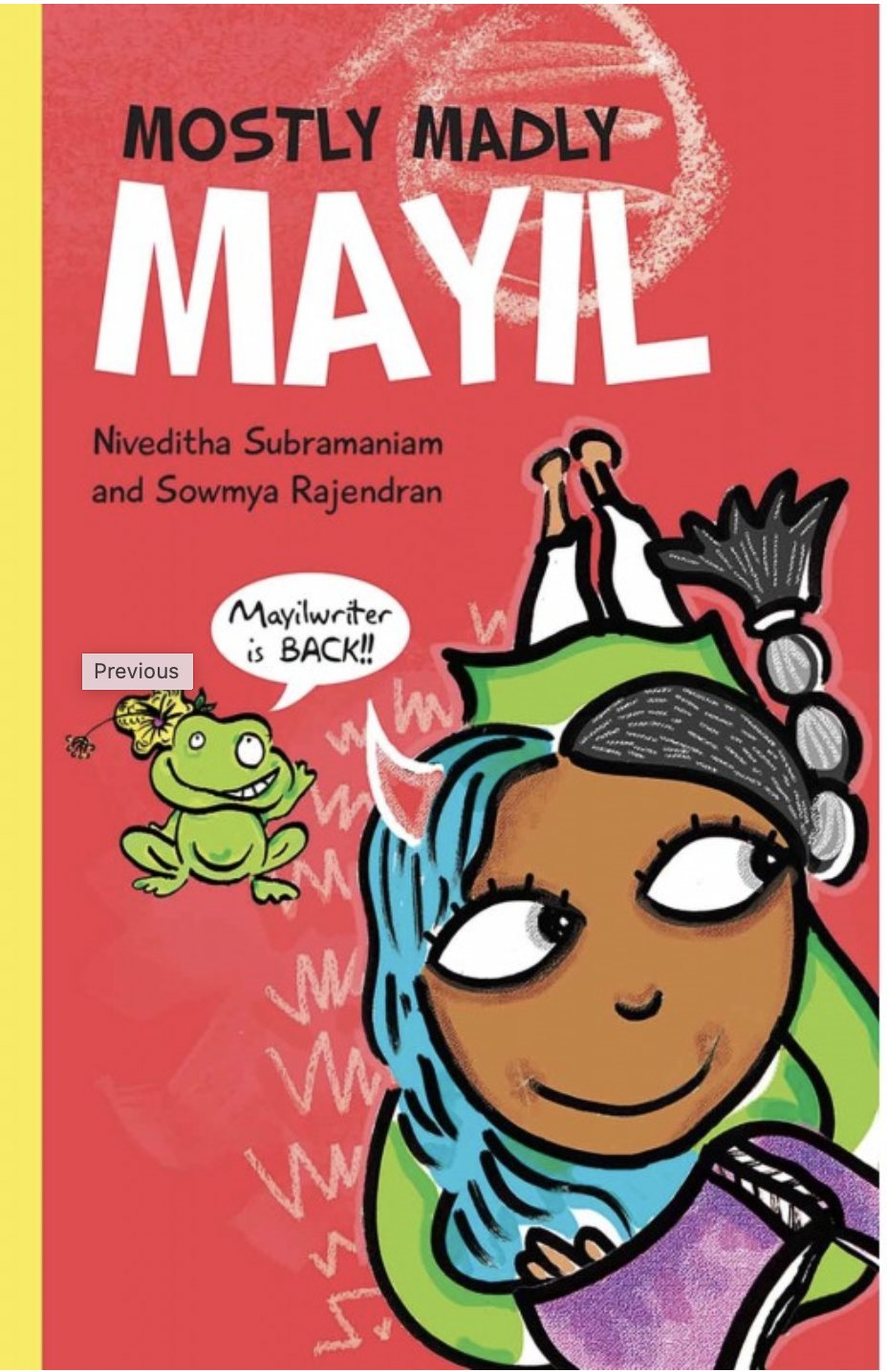
I recently wrote about young adult books that tackled so called 'difficult' topics like sex, sexuality, gender, grief and conflict for The Hindu Weekend. I emailed author Sowmya Rajendran about her Mayil series, co-authored with Niveditha Subramaniam (who also illustrated the books) and published by Tulika Books.
In three books, Mayil Ganesan questions everything from sex to harassment to gender stereotyping through a series of fun, thoughtful diary entries.
The books are a huge hit with young readers, but some adults take issue with some of the themes the book deals with.
Here are Sowmya's thoughtful responses, some of which didn't make it to the story.
1. Why do you think Indian parents are so terrified about their children reading about sex? What are they so scared of?
A big reason is that they have not grown up reading children's books that discuss sex openly, even if they may have had such conversations with their peers. Seeing it in a book, in the written word, can be discomfiting. They also worry that they're 'putting ideas' in their child's mind by giving them such books. There's not enough acknowledgement of the fact that our bodies and minds grow gradually and constantly. That a child doesn't start thinking about sex and sexuality only at 18. But books are a great way to introduce such subjects to children in a sensible and responsible manner. They are curious about it and they are going to seek out that information and explore, whether you want them to or not.
2. On popular children's book groups on Facebook, there are so many posts from parents saying 'Oh no! My child read this!' or 'How do you deal with these things in the book?' and I remember one post that was particularly strongly worded in condemning the book for talking about sex. How do you feel/react to these posts? Do you feel the need to respond/defend the work?
When Niveditha and I wrote the first book in the Mayil series, we felt strongly that the book should be in the natural voice of a young girl, someone who is 12 years old. We drew a lot from our own childhood and adolescence, the kind of conversations and confusions that we had at that age. The Diary of Anne Frank is celebrated world-over, and you'll find that teenager Anne wrote pretty explicitly about sexuality...and this was in the middle of World War 2.

The published version we have now was in fact censored by her father because he wasn't sure about how her diary as it was would be received. Since our aim was to capture an Indian growing up experience, we felt our first responsibility was towards our readers. We were nervous about how adults would perceive it but we did not self-censor while writing. We did expect such reactions. What we did not expect, to be honest, is the overwhelming love we have also received.
So many parents have told us how the Mayil books helped them discuss difficult subjects with their children. The book being recommended for the CBSE reading list and winning the Bal Sahitya Puraskar came as validation for our intentions.
I generally do not defend the series unless someone has brought it up with me directly. The only time I jumped into such a conversation on a reading group was when a parent called it 'pornography'. I restricted myself to explaining the context of book while acknowledging the person's freedom of expression to disagree with my views or even slam the book.
3. How have young readers responded? Do they ever ask you about these topics in their interactions with you? Do schools ask you to censor some of these things in your interactions with students?
We have had all kinds of reactions for these books from young people. Many absolutely love it and believe themselves to be Mayil, drawing comparisons between her life and what goes on in their family and school. Some have had discussions with their parents about sensitive issues like sexual harassment, domestic violence, revenge porn and so on. There are also kids who have been confused about the books. I remember one girl who loved the book but felt it must be removed from the school library because she was uncomfortable with the idea of her younger brother reading it. Another child was horrified that we had written about Mayil staining her underwear when she gets her period. She absolutely hated the fact that we'd put this in the book. But later, she changed her view of the book and became a fan. I think the schools that have invited me so far have generally been aware of my work, so they haven't asked me to censor what I say. It's been over 10 years since the first book came out and I'm so glad that it still remains relevant for children today.
You can buy the Mayil books from Tulika's website here.





















Write a comment ...